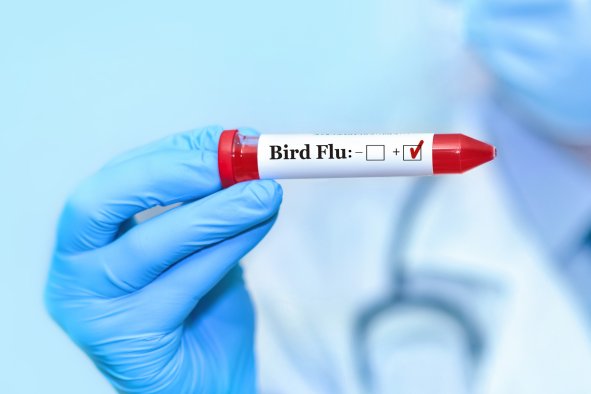A new, sparkling Japanese "jelly drink" has been making waves on social media after being hailed as a "drug-free alternative to Ozempic."
The beverage, called In Tansan, was released by Japanese food manufacturer Moringa in mid-June and has been selling out "almost instantly" every time it is restocked on Amazon, media in Japan report.
Social media users have described the drink as a "must-have for remote workers" that "instantly kills hunger." But does it really live up to the hype?
Moringa, the same company that produces HI-CHEWs candy, says that the product is specially formulated to solidify into jelly on contact with strong acid, like the juices in our stomachs. The bubbles then get stuck in this gelatinous solution, creating a bulky solid that fills up our stomachs and, in theory, staves off hunger. Because of this, the simple soft drink has been compared to Ozempic and related weight-loss medications.
Ozempic is an injectable prescription drug based on a naturally occurring human hormone called glucagon-like peptide 1 (GLP-1), which plays a key role in regulating appetite and blood sugar levels. The drug's active ingredient is a molecule called semaglutide, which mimics the structure of this hormone and activates its receptors.
By activating these receptors, semaglutide induces feelings of fullness while delaying the emptying of our stomach, making us feel less hungry and therefore less likely to overeat.
Between the start of 2020 and the end of 2022, prescriptions of GLP-1 mimic medications like semaglutide increased by 300 percent across the U.S., according to health care analytics company Trilliant Health. However, without insurance, the drug can set you back hundreds of dollars every months.
So, how does this low-cost jelly drink compare?
Writing for Japanese outlet SoraNews24, journalist duo Master Blaster said that a single serving of In Tansan, costing the equivalent of $1.48, staved off their hunger pangs for two hours and worked "really well."
"After drinking the whole thing, there was a noticeable reduction in hunger," Master Blaster wrote. "It didn't go away completely, but it wasn't as nagging."
The drink comes in two flavors: lemon and grapefruit, the latter being marketed as having zero calories.
So, what's the catch? Well, aside from it being incredibly difficult to get hold of, dietitians have said that while the drink is probably safe, it is unlikely to be that effective.
"It contains[...]common vegetarian food additives [that] may give a sensation of being full, but are not likely to have anywhere a similar effect as seen with drugs such as semaglutide," Duane Mellor, a dietitian at Aston University in the U.K. and the British Dietetic Association, told MailOnline.
Mellor added that one of the sweeteners used in In Tansan, erythritol, is a known laxative and may interfere with the absorption of other drugs if consumed in high quantities.
Do you have a tip on a health story that Newsweek should be covering? Let us know via science@newsweek.com.
Disclaimer: The copyright of this article belongs to the original author. Reposting this article is solely for the purpose of information dissemination and does not constitute any investment advice. If there is any infringement, please contact us immediately. We will make corrections or deletions as necessary. Thank you.




